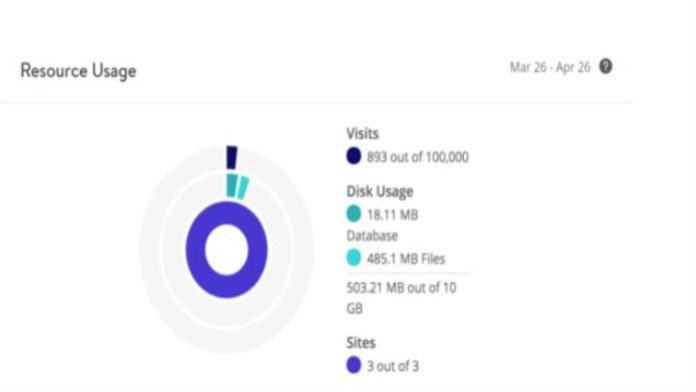Web hosting can come in all shapes and sizes, but it definitely is more than a lot of business owners think. Your web hosting literally makes or breaks your business website, and so much depends on it. It is responsible for ensuring advanced security of your customers’ data, and providing them a seamless shopping experience.
Currently, WooCommerce makes up 22 percent of the global market and has been downloaded over 88 million times. For WordPress users who have their eCommerce store online, WooCommerce is just right to give them faster loading times, advanced SEO, real-time ‘inventories – the best scenario for getting higher ROIs. Google says that 53% of mobile users leave a website if it took more than 3 seconds to load. That does set high standards for eCommerce sites (with hundreds of product pages) to keep up. Delays are worse than downtimes and can lower your conversion rate by 7%, as the bounce rate shoots as high as 103%.
Just like a car running on flat tires, all your website optimization will land flat on its face without the right, faster-hosting server. Before we get any further, here are types of hosting in a nutshell:
Shared Hosting: One of the most affordable solutions in the current market, shared hosting is perfect for websites with a small amount of traffic, and share the same resource. The hosting provider will take care of the backend stuff for you, simply upload your files. It’s simple and easy but can get slower with time as more websites come into play, or costly to provide for a high traffic website.
Dedicated Hosting: You can also choose to have a rented, or purchased the dedicated hosting solution for your website. Dedicated hosting means you’ll have exclusive access to a physical server, not shared with anyone else. You’ll also have more control over how everything is configured, and in most cases that means you’ll be responsible for everything from the OS to the web hosting software.
VPS hosting: A virtual private server is similar to a true dedicated server, in that you are responsible for the entire setup, however instead of a dedicated physical machine, you have access to a virtual machine, a sandboxed environment that you can configure however you wish, sharing the same physical machine with others. This allows you to have complete control from the OS up while not costing as much as a true dedicated server.
Understanding the Benefits of WooCommerce Hosting and Choosing Parameters
Despite the alternatives, WordPress managed hosting can help you keep your focus where it should be – curating responsive, easy-to-use websites for your customers. Here are so many benefits that come with WooCommerce hosting, compared to generic hosting. Some of them can be:
- Taking care of your online site maintenance, security, and other basic features on its own.
- Easy to set up and keep backups for keeping your data safe and protected.
- Advanced security features for maintaining the integrity of sensitive user data.
- Good support from experts for beginners who might need guidance.
- WooCommerce hosting helps in ensuring that your website keeps optimum uptime at faster loading speeds. This happens because of the server-level caching feature that comes in WooCommerce hosting and can save your business from witnessing any lost sales opportunities.
- Equipped with SSL certificates that can provide your website with strong encryption and on-record ownership documents for a certain domain name.
- WordPress hosting also provides firewalls, hack-resilient features that make it essential for your eCommerce store.
There are several WooCommerce Hosting providers that can supply you with convenient tools to effectively manage your website. But, then again you’d need the right parameters to test each option for choosing wisely from, based on how strong it emerges out to be. All of the above benefits also stand true to be testing parameters, along with the following:
1. Available Disk Space:
For a webpage, the average-sized script will only be a few megabytes at most. The real space hogs are images, especially if not properly optimized. Therefore, you’d need a hosting provider that can keep up with your storage space requirements, as well as provide it at affordable prices.

Example of how disk space usage can be crucial to your eCommerce business
Credits: Kinsta
2. Bandwidth:
Yes, one more thing that’s crucial but often slips from the minds of business owners. Some providers will rate limit you based on visitors monthly, others will enforce a hard data cap. Bandwidth can be more expensive than other resources, and it needs careful consideration. Trimming down the size of your webpages can help. Opening your browser’s networking console, clearing your cache and loading a page can help you identify how much bandwidth a single visitor will use the first time they load your website.
-
BlueHost – Good for medium/small businesses:
In terms of solid storage availability and bandwidth, you can opt for BlueHost, which comes highly recommended by WordPress itself. Starting at just USD6.95/per month, Bluehost provides up to 100GB of unmetered storage space to all its users. It is also known for its hands-on features like:
- Unmetered bandwidth in its storage space gives your website an added support to handle any sudden spikes in traffic seamlessly.
- Free custom domain registration for a tenure of a year, so that way you save money easily.
- You get a dedicated IP address to go with your website, thus making your payments safer and your customers trusting better.
- Auto-installation of WooCommerce, as well as storefront themes, is a gamechanger when you’re a business owner cutting back on time and extra costs.
- Includes several other security features like integrating CodeGuard Backup Basic plan into the plan you choose for your business on BlueHost.
3. Database Updates:
Your WooCommerce store is what your database is in the roots. The database is a given by hosting providers, but it doesn’t mean that they all gel well with WooCommerce. For any online store, lack of an adequate database can cause major problems including slowing down of your website. Therefore, you’d need a hosting provider that’s compatible with WooCommerce as well as direct regular optimization and cleaning up of your data for smooth usage.
In terms of a rich, and automated database, you can choose:
-
SiteGround – Beginners’ Choice
- They also come officially recommended by WooCommerce and lineup powerful functionalities. Starting from free SSL integration, to free WordPress installation – SiteGround takes care of a handful of things. Here’s how:
- With Siteground you can worry less about carrying out WordPress auto-updates or conducting regular backups.
- In certain packages of Siteground you can also find special caching available, giving your website better speed and faster loading times.
- Completely organized website transfer feature also comes in SiteGround, making the transition experience easier.
- PCI compliant at the highest level and has an integrated Cloudflare CDN.
4. Hosted, Unlimited Email Accounts
For your online store, a lot lies in the digital reputation of it all. As a business owner, you’d require at least five to six email addresses, to build and keep up with the brand-building requirements as per the customers’ and market standards. Only a handful of hosting providers give you limitless access to such email accounts with their plans, and we’d recommend you to go with InMotion for the same.
-
InMotion – Perfect for self-run eCommerce sites
As deemed from the title, this WooCommerce hosting provider is known for its great help and support features to its users. Starting at just USD4.99 per month, it provides a lot of otherwise expensive services for free, such as:
- Free domain
- Free SSL security
- Free email accounts, as required
- Free migration
- Free disk space
- Over 200 free storefront themes
- $150 valued advertising credits
It comes with equally punching security features like DDoS protection, web app firewalls, IMAP emails, etc. Most of the customers rated InMotion for its superb customer service and support, which makes it an obvious choice for self-sufficient business owners who’re running their independent websites solely on their shoulders.
Setting Things Up with WooCommerce Hosting
A lot goes into building an eCommerce store from scratch and running it effectively day after day. For business owners, it can mean multiplying their ROIs as well as staying ahead in the competition. Cost-effectiveness, scalability and solid customer support are some of the factors that can influence an online store.
If you want to hire an eCommerce developer, below we’ve listed some of the best options based on reviews.
TheeDigital – Primarily a design agency, they offer both design and development services for WooCommerce storefronts. They do more than make a simple theme and customizations- they can also develop custom WordPress plugins.
CodeClouds – Their WooCommerce expert developers offer eCommerce development services for a variety of platforms, and their in-depth experience with multiple platforms allows them to help you as per your business needs.
Virtina – Another company that offers a large variety of eCommerce development services, in addition to developing your theme, Virtina develops WooCommerce extensions as well as WordPress plugins.

